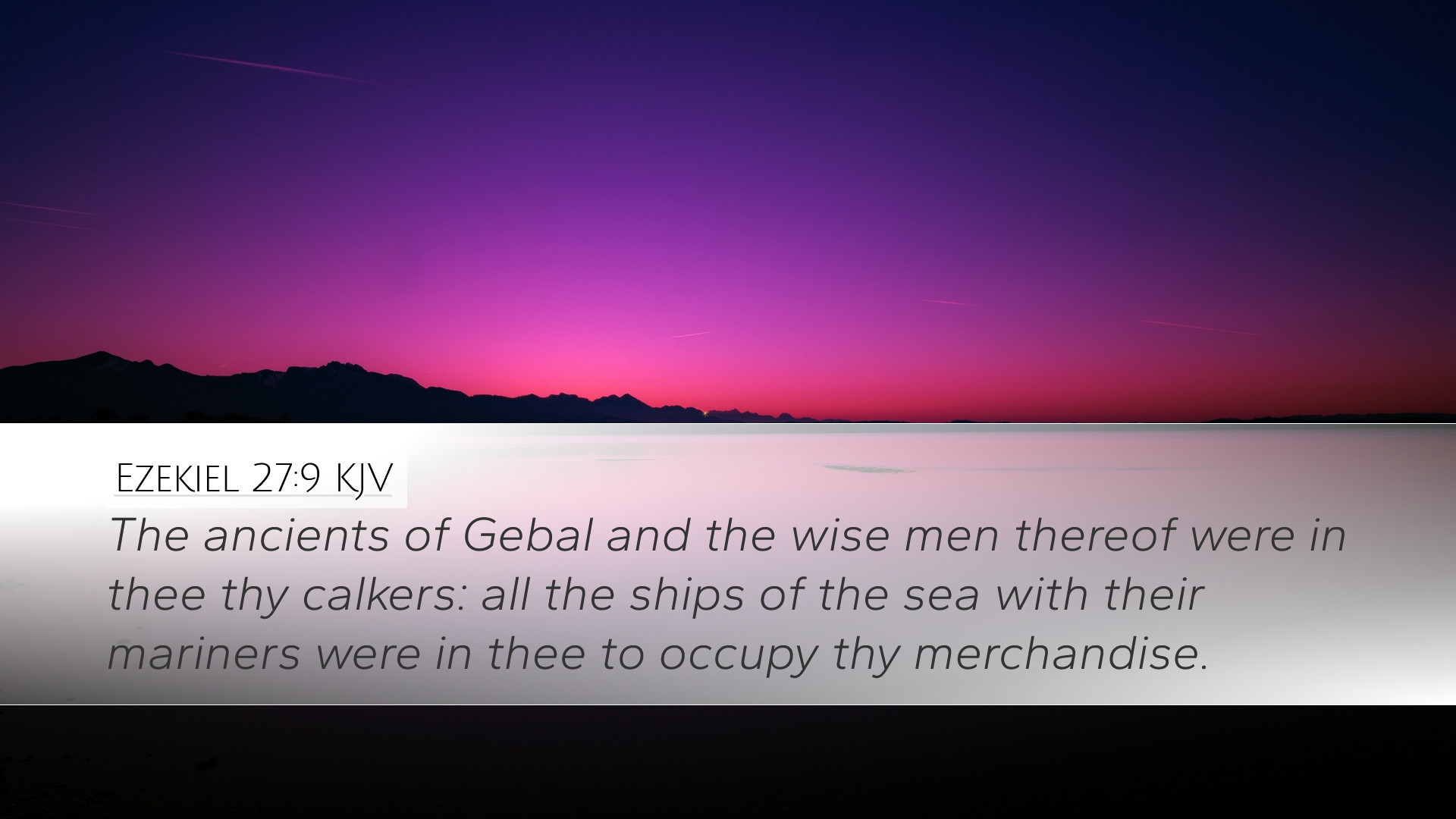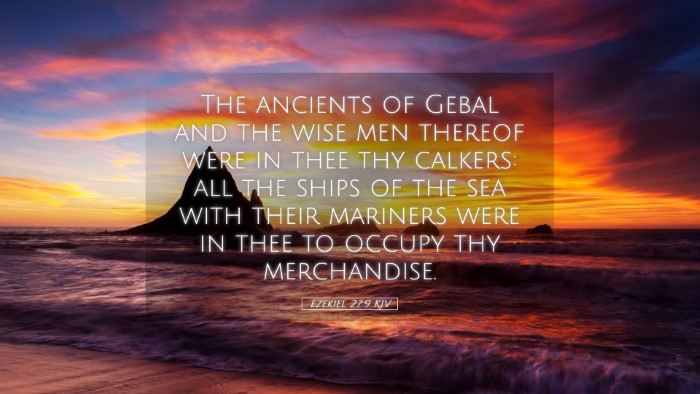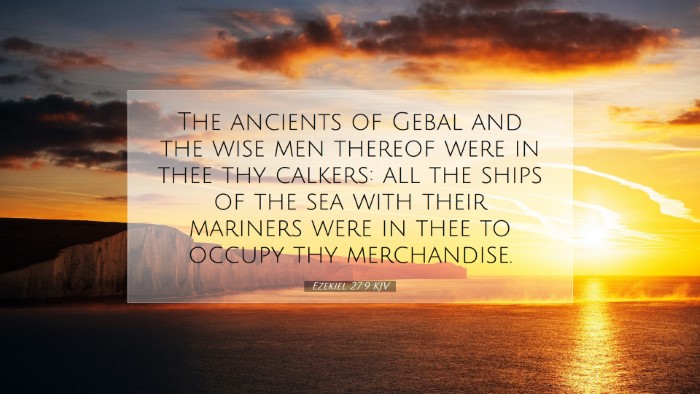Ezekiel 27:9 - Commentary
Bible Verse: "The elders of Gebal and the wise men thereof were in thee thy caulkers: all the ships of the sea with their oars were in thee to occupy thy merchandise."
Introduction
Ezekiel 27 is a lamentation over Tyre, a prominent trading city situated on the Mediterranean coast. In this verse, the prophet highlights the role of Gebal (Byblos), a neighboring city, in the maritime activities of Tyre. This commentary seeks to draw together insights from various public domain commentaries to elucidate the significance of this verse in the broader context of Ezekiel's message.
Contextual Analysis
Matthew Henry notes that the passage illustrates the richness and splendor of Tyre's commerce, wherein not only local craftsmanship but also the influence of neighboring cities played a crucial role in its prosperity. The elders of Gebal, recognized as expert craftsmen (caulkers), represent the intricate network of trade and craftsmanship that characterized the ancient Near Eastern market.
Albert Barnes emphasizes the unique position of Tyre as a central hub for maritime commerce in the ancient world. The reference to the 'ships of the sea' indicates Tyre's extensive shipping industry, reliant on skilled labor from surrounding nations, thus showcasing the city's economic interdependence.
Adam Clarke adds that this acknowledgement of skilled men from Gebal serves to emphasize Tyre's decline and the loss of these valuable resources, illustrating how the city's downfall is profound not just in military terms but also in economic aspects, impacting numerous lives that depended on its trade.
Thematic Insights
- The Interconnectedness of Nations: The verse encapsulates the cooperative nature of trade relationships in the ancient world. By mentioning Gebal, Ezekiel illustrates a complex web of alliances and dependencies.
- Skilled Labor and Expertise: The elders and wise men symbolize the advanced craftsmanship that supported Tyre's maritime activities. Henry notes that such skills are instrumental in showcasing the importance of various professions in economic stability.
- Trade as a Measure of Success: The verse communicates that the success of Tyre was directly linked to its trade relations, underscoring the significance of commerce as a measure of a nation's prosperity.
Spiritual and Theological Reflections
From a theological perspective, this verse serves as an illustration of God’s judgment upon nations and cities that turn from righteousness. While Tyre enjoyed prosperity, this above-characteristics of worldly success ultimately led to its downfall due to pride and depravity.
Barnes highlights the importance of understanding worldly success within the framework of divine judgment. The tradesmen and skilled laborers, while crucial for commerce, suggest that reliance on human effort and achievements can lead to spiritual blindness.
Henry offers an exhortation for believers today, urging a balance between appreciating the skills and trades that God provides while remaining vigilant against the temptation to harbor pride in human achievements. Ezekiel's message, therefore, transcends time, urging reflection on both personal and communal integrity.
Conclusion
Ezekiel 27:9 serves as a profound reminder of the intricate links between trade, labor, and the decline of civilizations. As churches and communities continue to navigate economic challenges, the lessons drawn from Tyre's fate emphasize the importance of humility, reliance on God, and the integration of spiritual truth in all facets of life. In the perils of worldly success, we must remember the eternal truth found in the supremacy of God over all nations and commerce.
The combined insights from Henry, Barnes, and Clarke provide a robust framework for understanding this single verse within the larger narrative of Ezekiel, equipping pastors, theologians, and students for deeper engagement with the Scriptures.


